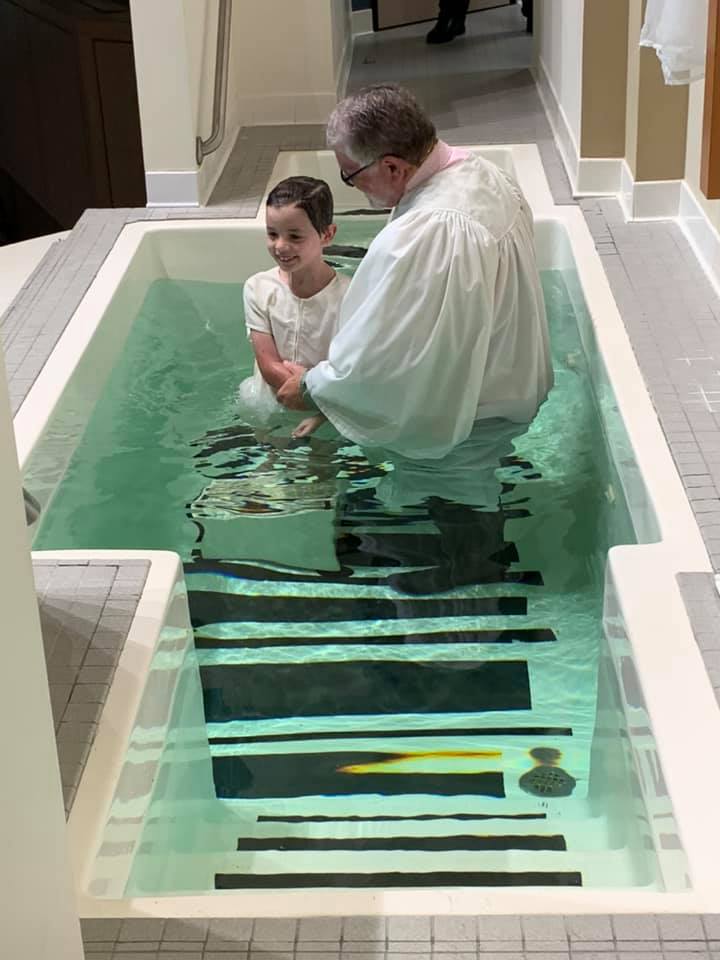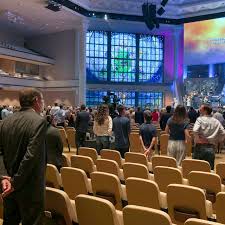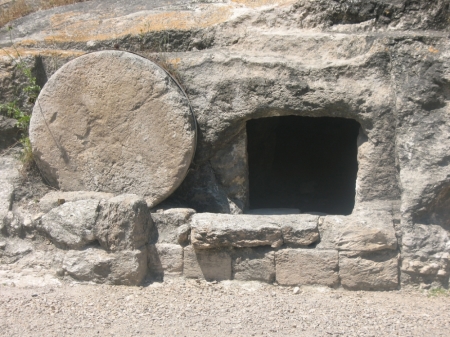Background Passage: John 4:4-30; 39-42
He never called her name, but he knew her.
She held no position of prominence or power. In fact, her actions tell us she is a woman with a sullied past and sinful present.
Think of all the conversations Jesus had with his disciples. Think about all the discussions he held with the Pharisees. Jesus’ shared his longest dialogue with a Samaritan woman who was an outcast in her own community, a woman no other Jewish man would even dare to address.
Jesus encountered the Samaritan woman at the well just outside the village of Sychar as he rested from his travels in the heat of the day.
What was it about the conversation that made it so valuable to you and me that made the Holy Spirit impress upon John the need to share it in such vivid detail?
The Chosen is a dramatic television series released in 2020 about the life of Jesus. The series, the largest crowd-funded series in television history, was created and co-written by American film producer Dallas Jenkins. The series looks at Jesus’ life through the eyes of those who met him. One of the episodes is about the Samaritan woman at the well.
Take a look at this eight minute clip from The Chosen about the woman at the well. I think it will be worth your time.
These are the words of Jesus I remember hearing in the episode with such clarity.
“A time is coming when you will worship the Father on neither this mountain nor in Jerusalem…A time is coming and has now come when the true worshipers will worship the father in the spirit and in truth, for they are the kind of worshipers the father seeks.” (John 4:21-23)
John provided such rich detail of this encounter because at its heart, he reminds us that God desires authentic worship…real…genuine worship…from all who would believe in him.
The historical bitterness between the Jews and Samaritans erected a social barrier between the people. Despite both sides longing for the Messiah, they debated the form of worship. The Jews believing one must worship God only in the temple in Jerusalem. The Samaritans, excluded from that opportunity, choosing to worship on Mount Gerizim. When challenged, the woman fell back on tradition, valuing the place of worship rather than the object of her worship.
Jesus urged her to a deeper understanding. Trapped in the religious traditions of her people, she didn’t get to that point easily. Her self-loathing evident because of past transgressions, she hid behind the rigid wall of cultural animosity. She argued. She challenged. She pushed back.
Jesus looked into her heart and saw the woman through the eyes of a loving and forgiving God and that changes her. When she understood it was no longer about “mountains and temples,” she became what he saw within her…the person she was meant to be. A worshiper in spirit and truth.
In that realization, is our first lesson. What does it mean to worship in spirit and truth?
To worship in spirit can mean that we must worship God from the heart. Sincere and motivated by our love for God and our thankfulness for all he has done for us.
Caught up in our own issues or distracted by the pressures of life, we can make worship mechanical and ritualistic. When worship becomes rote or routine, it is not “in spirit.” Worshiping in spirit requires us to infuse the act of worship with genuine praise and adoration, with heartfelt commitment and faith and with deep love that recognizes the grace gift of the one to whom we worship.
While most biblical scholars say there is a difference in this passage between the “in spirit” (lower case), and the Holy Spirit (upper case), we can recognize the role of the Holy Spirit in our worship. It is the Holy Spirit who opens our heats to God’s love and power. It is the Holy Spirit who gives voice to our rejoicing and our gratitude. It is the Holy Spirit who helps us see all that God offers through our relationship with Jesus. It is the Holy Spirit who joins us in meaningful and purposeful corporate worship.
To worship in spirit is to approach the throne of God knowing that we are loved and loving in return. It is to open our hearts to the work of the Holy Spirit in our lives so that the worship we experience allows us to see what Jesus sees in us. To set aside our failures. To become the person we were meant to be.
Jesus also told the woman at the well that she must worship “in truth.” He cautioned her not to place too much stock on the where of worship, but rather on the who. He called her to ensure that her worship did not stray from God’s teaching, God’s word. Our worship must be anchored to the rock of Jesus’ teachings, his life and his nature.
There is a tendency in the modern world to let our cultural or political realities color our worship. God’s truth gets watered down to be more palatable. Worship seeks to entertain rather than enlighten.
Worshiping in truth must exalt God. It must be grounded in biblical doctrine and reflect the nature of God, his Son and his Spirit.
The Christian vocal group, Mercy Me, sings a song that speaks to the spirit and truth of worship. The chorus of Offering reflects an attitude of worship that all should seek to emulate.
“I bring an offering of worship to my king.
No one on earth deserve the praises that we sing.
Jesus, may you receive the honor that you’re due
Oh, Lord, I bring my offering to you.”
The words do not speak to the tithes we share, even though giving of that which God has blessed us with is a form of worship. I think the words remind us that we, our lives, ought to be a daily offering of worship to God.
To worship in spirit and truth is to give ourselves over to God completely as our offering of praise and adoration to the king. To yield our hearts without pause or reservation. To hold so tightly to the truth of God’s word that everything we do brings praise and honor to the father.
As I watched again that clip from The Chosen, I was struck by the way the woman at the well rejoiced in her new understanding of Jesus as the Messiah she longed to see. It was a joyous expression of worship born of the spirit and expressed in truth. Her excitement was contagious. As she shared her discovery with the town that had rejected her, they caught her joy.
“Then, leaving her water jar, she went back to the town and said to the people, ‘Come see the man who told me everything I ever did. Could this be the Messiah?’ They came out of the town and made their way to him…Many of the Samaritans from that town believed him because of the woman’s testimony
“So, when the Samaritans came to him, they urged him to stay with them and he stayed two days. And because of his words, many more became believers. They said to the woman, ‘We know longer believe just because of what you said; now we have heard for ourselves and we know that this man really is the savior of the world.'” (John 4:26-30, 39-42)
Oh, that my heart…our hearts…could worship that freely. So filled with joyous worship that those around us got caught up in our excitement in ways that brought them to the Lord. May our worship inspire others to understand that Jesus really is the savior of the world.
Let’s make that our prayer this week.
……….
Another Thought: As I uploaded this devotional thought onto my blog, I reread the biblical story in John one more time. I was struck by yet another truth that doesn’t quite fit the original theme. I share it with you free of charge.
Scripture tells us Jesus “had to go through Samaria.” For every self-respecting Jew of that day traveling through Samaria was no choice at all. Jewish travelers went out of their way to avoid the region.
The Greek words used in the text suggest “it was necessary” for Jesus to go through Samaria. In other words, Jesus felt so convicted by his Father to walk through the heart of Samaria that he could take no other route. He knew whom he would encounter along the way and could not miss the opportunity. In the video, Jesus tells the woman, “I came to meet you.”
Here’s what warms my soul. Jesus seeks us out. He doesn’t wait for us to come to him. He takes a right turn and heads through our Samaria intent on finding us. He sits at our well talking to us about the living water he offers, giving us a chance to be the persons he sees…the persons we were meant to be.
We may be living lives apart from God like the woman at the well. Ashamed of our failures. Certain that God has little use for us. Therefore, we pretend to have little use for him. Yet, there he is. Sitting at the well. Ready to talk.
We may have a great relationship with Jesus. Seeking his will. Enjoying our worship. Trying to do what he wants us to do. Yet, there he is. Sitting at the well. Ready to talk. Encouraging us to drill down deeper into the well of faith. To look harder at his teachings. To find a more authentic form of worship.
Either way, I promise, we can be more than we are now. It doesn’t matter what your life has been or what it is now, God desires a deeper, more honest, more fulfilling relationship with you. Even if we are not thinking of Jesus at all, he is thinking of us for no other reason than he loves us.
I find that…compelling.








